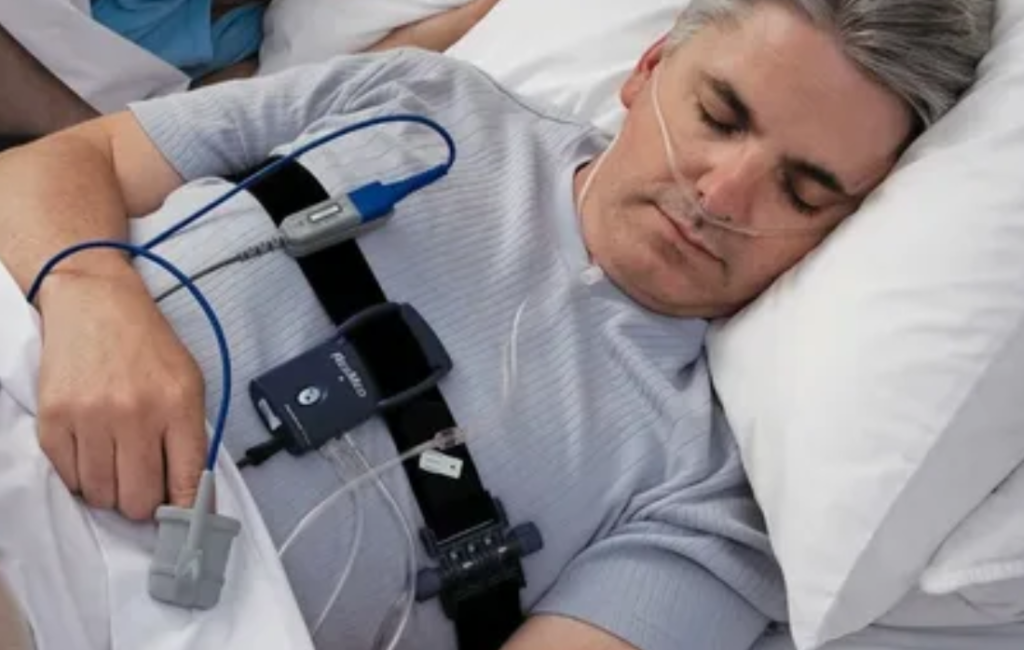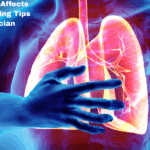
Sleep apnea is a sleep-related condition marked by interruptions in breathing or shallow breaths while asleep. These pauses can occur multiple times throughout the night, leading to fragmented sleep and potential health complications if left untreated. Let’s delve deeper into the causes, symptoms, diagnosis, and treatment options for sleep apnea.
What is Sleep Apnea?
Sleep apnea is a condition typified by interruptions in breathing or shallow breaths during sleep. These interruptions in breathing can occur multiple times throughout the night, leading to disrupted sleep patterns and potential health complications.
Causes of Sleep Apnea
1. Obstructive Sleep Apnea (OSA):
OSA occurs when the muscles in the throat relax excessively during sleep, causing the airway to become partially or completely blocked. Factors such as obesity, anatomical abnormalities, and nasal congestion can contribute to OSA.
2. Central Sleep Apnea (CSA):
CSA arises due to a disruption in the brain’s ability to transmit appropriate signals to the muscles responsible for regulating breathing. This can occur due to conditions such as heart failure, stroke, or neurological disorders.
3. Complex Sleep Apnea Syndrome:
This condition, also known as treatment-emergent central sleep apnea, involves a combination of obstructive and central sleep apnea elements, often seen in individuals undergoing CPAP therapy for OSA.
Symptoms of Sleep Apnea
1. Loud and Persistent Snoring:
Snoring is a common symptom of sleep apnea, particularly in OSA cases where airway obstruction leads to turbulent airflow.
2. Pauses in Breathing:
Witnessed apneas, where breathing stops for brief periods during sleep, are hallmark symptoms of sleep apnea.
3. Excessive Daytime Sleepiness:
Due to disrupted sleep patterns, individuals with sleep apnea often experience excessive daytime sleepiness, leading to fatigue and reduced alertness.
4. Morning Headaches:
Waking up with headaches, especially in the morning, can be indicative of oxygen desaturation and nighttime hypoxemia associated with sleep apnea.
5. Irritability and Mood Changes:
Sleep deprivation caused by untreated sleep apnea can result in irritability, mood swings, and difficulty concentrating during waking hours.
Diagnosis of Sleep Apnea
1. Clinical Assessment:
A thorough evaluation of symptoms, medical history, and physical examination is the first step in diagnosing sleep apnea.
2. Sleep Study (Polysomnography):
Polysomnography involves monitoring various physiological parameters during sleep, including airflow, oxygen levels, brain waves, and muscle activity, to confirm the presence and severity of sleep apnea.
Treatment Options for Sleep Apnea
1. Continuous Positive Airway Pressure (CPAP) Therapy:
CPAP involves using a machine that delivers a continuous stream of air through a mask worn over the nose or mouth, keeping the airway open during sleep.
2. Oral Appliances:
Dental devices like mandibular advancement devices (MADs) or tongue-retaining devices (TRDs) can help reposition the jaw or tongue to prevent airway obstruction.
3. Lifestyle Modifications:
Weight loss, avoiding alcohol and sedatives before bedtime, maintaining a regular sleep schedule, and sleeping on the side instead of the back can improve sleep apnea symptoms.
Seeking Expert Care: Dr. Yogesh Agrawal in Wakad, Pune
Dr. Yogesh Agrawal, a highly skilled sleep specialist based in Wakad, Pune, is renowned for his expertise in diagnosing and treating sleep disorders, including sleep apnea. With a patient-centric approach and a focus on personalized care, Dr. Agrawal ensures that individuals receive comprehensive evaluations and tailored treatment plans to effectively manage their sleep apnea and improve overall sleep quality and health.
Summary
Understanding the causes, symptoms, diagnosis, and treatment options for sleep apnea is crucial for individuals experiencing sleep disturbances and related health issues. By seeking expert care from specialists like Dr. Yogesh Agrawal and adopting appropriate management strategies, individuals with sleep apnea can enhance their quality of life, reduce health risks, and enjoy restful and rejuvenating sleep.




